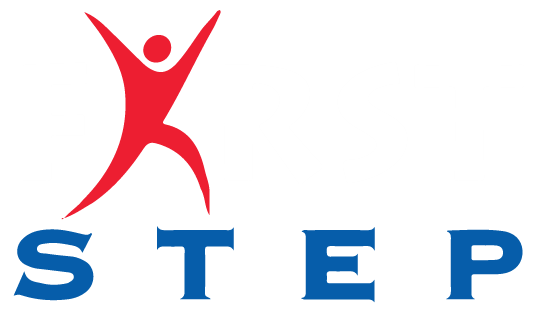“Why is my child behind? Why is my child not hitting milestones?”
As parents, we often panic and ask these questions when we notice developmental delays in our children. When this happens, it’s important to seek support and services for your child. There is no shame in seeking help to nip a potential developmental delay in the bud.
Early Intervention recognizes the significance of your child’s first few years as a critical period for learning and development that lays the foundation for future success. Here at First Step, Inc., we can help you identify and address potential developmental delays at an early stage. This blog post tackles things you need to know about early intervention for children with developmental delays.
Parents, we’re here for you!
Navigating the early signs of Autism Spectrum Disorder can be overwhelming. Arm yourself with our comprehensive guide, ‘Discovering Autism Spectrum Disorder: Your Guide to Early Signs and Intervention.’ Get insights, advice, and tools tailored just for you. Click below to download and let First Step support your family’s journey every step of the way!
Understanding Early Intervention
Early Intervention refers to a range of services for children at risk of developmental delays or disabilities. It aims to identify and address these challenges as early as possible to promote optimal development and minimize potential long-term impacts on a child’s overall growth and well-being.
These interventions encompass a wide range of services tailored to meet the unique needs of each child, involving professionals from various disciplines who collaborate with families to enhance developmental outcomes.
First Step, Inc.: A Beacon of Empowerment
After identifying a lack of assistance for people with special needs in Hot Springs, Arkansas, a group of parents, community leaders, and medical experts founded First Step, Inc. in 1958. We aspire to help children and adults with developmental delays and disabilities by providing programs, therapies, and treatments that enable individuals to attain their full potential.
Our mission is to promote the independence and integration of all people with disabilities, including young children. First Step offers resources and support for parents and children with unique needs.
Early Intervention Programs and Services
Early intervention programs typically focus on children from birth to age three, a critical period for brain development and learning. The Early Intervention services we provide at First Step, Inc. are individualized for the unique needs of each child and may include:
- Comprehensive assessment: Professionals evaluate the child’s physical, cognitive, communication, social, and emotional development to identify any delays or concerns.
- Therapy services: We have speech, occupational, and physical therapy as well as other specialized interventions to address specific developmental areas or challenges.
- Parent education and support programs: We offer guidance and resources to help parents understand their child’s development, learn strategies to support their child’s progress, and connect with other families in similar situations.
- Service coordination: Our Early Intervention programs have a team of professionals who work together to coordinate services, monitor progress, and ensure that children receive appropriate interventions.
Providing support during the critical early years maximizes the child’s potential to lead a more fulfilling life in the future.
Empowering Parents: Special Needs Parenting Advice
Raising a child with unique needs is both rewarding and challenging. Parents of children with unique needs experience a wide range of situations and emotions on their parenting journeys.
First, there is the emotional impact of receiving a diagnosis and coming to terms with the reality that their child’s development may follow a different path. Additionally, navigating complex systems and accessing appropriate services can be overwhelming, with long waiting lists, limited resources, and financial strains.
Importance of Parental Involvement in Early Intervention
Parental involvement in Early Intervention is vital for the success of children with developmental delays or disabilities. It ensures that interventions are tailored to the child’s needs, promotes continuity of care, maximizes learning opportunities, empowers parents as advocates, and provides emotional support.
By actively involving parents, Early Intervention programs create a collaborative and holistic approach that optimizes children’s developmental outcomes and fosters supportive environments for families.
Tips for Advocating for Your Child’s Needs
When advocating for your child’s needs, it is crucial to follow these tips:
- Educate yourself on their condition and available services.
- Build a support network of other parents and advocacy organizations.
- Communicate with professionals about your child’s needs and concerns.
- Collaborate with your child’s care team.
- Be proactive in seeking appropriate resources.
- Document important information and records.
- Actively participate in meetings and Individualized Education Programing discussions.
- Maintain a positive and persistent attitude.
- Seek additional support or expertise when needed.
By following these tips, you can advocate for your child’s needs and ensure they receive the support and resources necessary for their well-being and development.
Numerous resources and support are also available to help parents navigate this journey. Support groups and online communities connect parents facing similar situations, offering a safe space to share experiences, seek advice, and find emotional support. Additionally, local and national organizations provide information, workshops, and advocacy assistance.
Resources for Children with Special Needs
Children with special needs have access to various resources, including specialized schools, individualized education plans, therapies, assistive technologies, support services, and community programs. These resources aim to provide tailored support, enhance development, promote inclusion, and empower families navigating raising children with special needs.
Community Programs and Recreational Activities
Community programs and recreational activities for children with special needs provide inclusive and enjoyable experiences. Adaptive sports programs offer modified versions of sports. Programs and inclusive recreation centers offer engaging activities tailored to different abilities. These programs and activities promote physical, social, and emotional development, fostering inclusion and enjoyment for children with special needs.
Assistive Technology and Adaptive Equipment
Assistive technology and adaptive equipment greatly benefit children with special needs by enhancing their independence and overall quality of life. Communication devices like Augmentative and Alternative Communication systems enable effective expression, while mobility aids, such as wheelchairs and walkers, promote independent movement.
Sensory tools, hearing and vision aids, adaptive utensils, and computer accessibility tools are also available to cater to a child’s specific needs.
Financial Assistance and Insurance Coverage Options
When it comes to financial assistance and insurance coverage options for children with special needs, several avenues are available to explore:
- Medicaid: Medicaid provides health coverage for low-income individuals and families, including children with special needs. The Arkansas Medicaid program offers various services specifically designed to support individuals with developmental disabilities and other special needs.
- TEFRA: is an income-based program which allows families beyond the income limits of traditional Medicaid to access coverage for a child with significant developmental needs under a very affordable sliding fee scale.
- Supplemental Security Income (SSI): SSI is a federal program that provides financial assistance for children with disabilities based on their family’s income and resources. In most cases, SSI beneficiaries are also eligible for Medicaid.
Researching and contacting these programs, agencies, and organizations is crucial to understand the eligibility criteria, application process, and support available in Arkansas.
Success Stories: Testimonials from Families
Numerous children have experienced transformative outcomes through First Step’s Early Intervention services.
Jaxyn’s Communication Progress
Take the heartwarming story of a young boy named Jaxyn. When he was diagnosed with autism, his and his family’s world seemed to pause. There were countless unanswered questions and a profound sense of helplessness. But with the help of First Step, huge progress has happened in Jaxyn’s life, creating a significant difference in his life and for his family.
“First Step has been a blessing for our family. When our son, Jaxyn, was diagnosed with autism, it felt like the world stood still. We had so many unanswered questions and felt helpless, like we would never be able to communicate with or understand our son. The teachers and therapists at First Step have helped develop Jaxyn so much in the last two and a half years.
He went from not speaking whatsoever to saying a few words here and there. His communications are still complicated, but they are so much better than before he started at First Step. We are so grateful for the patient, kind, and loving people First Step put into Jaxyn’s life, and we will be forever appreciative of the leaps and bounds they’ve helped him achieve. Thank you!”
~Andrea Bolden, Jaxyn’s mom
Rhys’s Inspiring Story
First Step’s early intervention program is not just another therapy service. It is a gateway to a promising future for many children, like Rhys, who was diagnosed with cerebral palsy due to premature birth. Just a year into his therapy, Rhys’s progress has been nothing short of miraculous.
“My grandson was 18 months old when he began therapy at First Step. He had been diagnosed with cerebral palsy due to premature birth. At this point, he was at a 0-month level, his right hand was atrophied, and he basically had little or no movement. He has been receiving therapy for almost a year and has dramatically improved. He can move all of his limbs; he can roll over, lift his head and hold it up. He is vocal now and tries to communicate; he is socially active and loves attention! He can reach for us now when he wants cuddles!
I cannot sing the praises enough for the therapists and teachers at First Step. He is now at the level of a 7 or 8-month-old. They showed us ways to help him at home, and they even helped us get special equipment for him, and most of all, Rhys loves them! He is always smiling and laughing with them! I do not hesitate to leave him with them because I know he is loved there.
First Step has the most friendly, caring, and loving staff you could wish for. We also have a three-year-old grandson receiving services, and he has shown great improvement too. Our granddaughter, who is five years old now, attended First Step for three years and just blossomed with their help and is no longer in need of any special services.”
~Nancy Hazelwood, grandparent
These testimonials reflect the profound impact of First Step’s approach. It demonstrates how our commitment to individualized care, expert therapies, and unwavering support positively transforms the lives of children and their families.
Ensure Your Child’s Success with First Step
Early Intervention plays a pivotal role in child development. We recognize the critical significance of the early years in shaping a child’s future. By intervening early, children receive tailored guidance that helps them overcome challenges, maximize their abilities, and reach their full potential. Through early identification and prompt intervention, we can create a solid foundation for children to thrive, ensuring well-being and happiness throughout their lives.
To all parents seeking help and support for their child’s development, remember that you are not alone in this journey. Contact First Step for the guidance, expertise, and resources you need to propel your child’s success.



